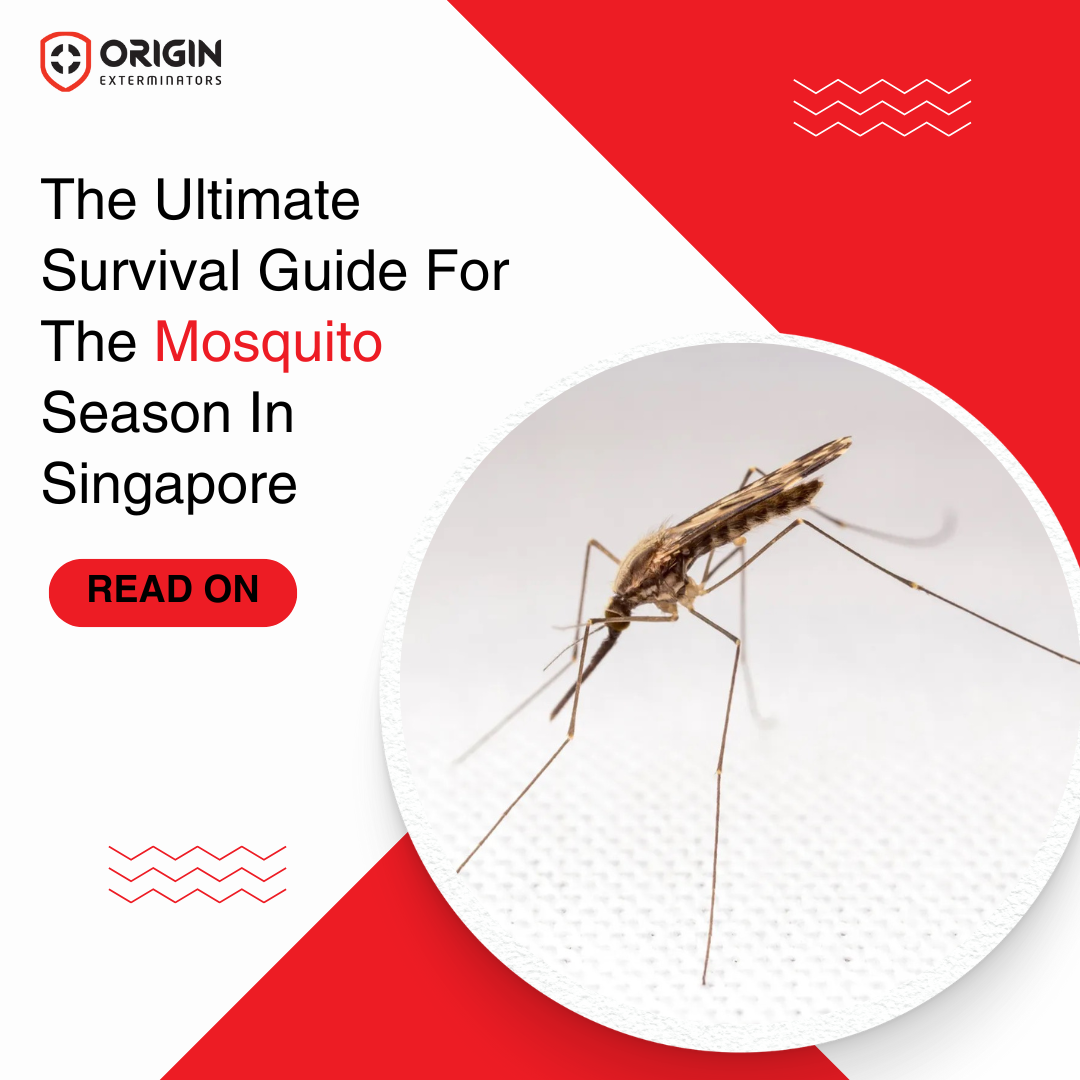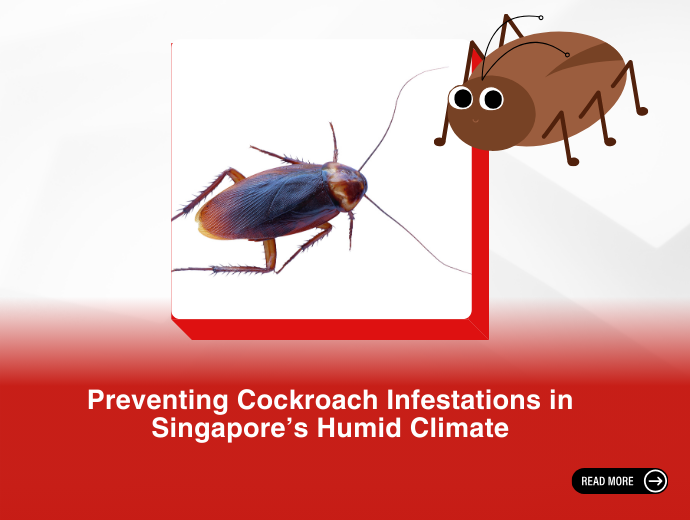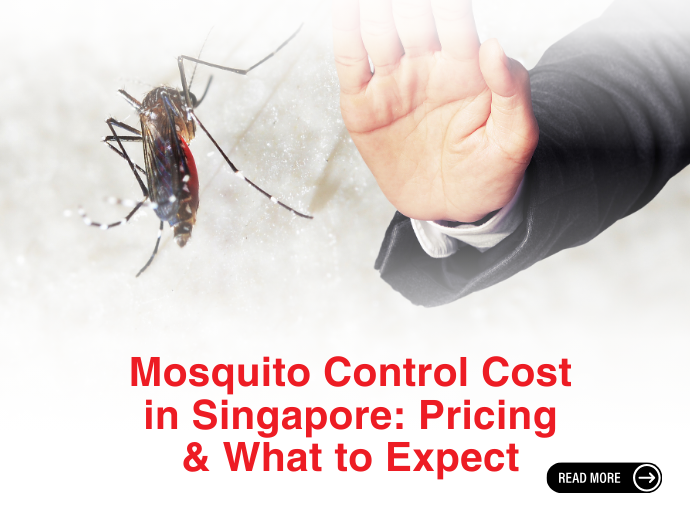Are you all set to deal with the yearly mosquito invasion in Singapore? As the weather gets warmer and the air gets more humid, mosquitoes start buzzing around more. Fret not, we at ORIGIN have prepared the ultimate survival compendium for you.
This guide will not only help you survive mosquito season in Singapore but also share ways to keep mosquitoes away from your home and tips to stay safe when you're outside.
From making your house mosquito-proof to protecting yourself outdoors, each part of this guide is here to help you stay safe and sound. So, get ready to learn how to deal with mosquitoes like a pro and enjoy a more peaceful time in Singapore, even during mosquito season.
The Mosquito Menace: Diseases To Be Vary Of
The buzzing sound of mosquitoes is an unwelcome soundtrack to many evenings. Beyond being a nuisance, these tiny pests pose a significant health risk due to the diseases they carry. Here’s the range of diseases that these insects can transmit:
- Dengue Fever: Caused by the dengue virus and transmitted by Aedes aegypti and Aedes albopictus mosquitoes. Symptoms include fever, pain behind the eyes, muscle/joint/bone pain, headache, and skin rash. Dengue Hemorrhagic Fever can lead to severe complications.
- Zika Virus: Spread by Aedes aegypti and Aedes albopictus mosquitoes. Can cause microcephaly in infants and other neurological defects.
- Chikungunya: Transmitted primarily by Aedes aegypti mosquitoes, causing fever, joint pain, skin rash, and headache.
- Malaria: A life-threatening disease caused by Plasmodium parasites transmitted by Anopheles mosquitoes. Symptoms include fever, joint/muscle pain, vomiting, diarrhea, and jaundice.
- Other Diseases: Mosquitoes can also spread yellow fever, West Nile virus, and Japanese encephalitis in Singapore.
Preventing mosquito breeding and infestation is crucial to avoid these potentially deadly diseases. Effective Mosquito control is key.
Mosquito Control For Your Homes
Eliminating Breeding Grounds
Eliminating standing water sources around your home is crucial to prevent mosquito breeding. Follow these steps for effective mosquito control:
- Practice the 5-step 'Mozzie Wipeout' recommended by NEA:
- Break up hardened soil in potted plants
- Lift and empty containers holding stagnant water
- Overturn pails and containers that can collect water
- Change water in vases and bowls regularly
- Keep roof gutters clear of leaves and debris
- Inspect your home weekly and remove any stagnant water sources, such as:
- Potted plant trays
- Discarded containers or tires
- Gully traps and drains
- Bamboo pole holders
- Cover gully traps and drains with a tight-fitting lid or wire mesh.
Personal Protection Strategies
Protect yourself and your family from mosquito bites by employing these Mosquito control strategies
- Using insect repellents containing DEET
- Wearing long-sleeved, light-colored clothing
- Installing mosquito screens on windows and doors [13,14]
- Using fans to keep air circulating
- Sleeping under a mosquito net
Natural Repellents and DIY Methods
- Use essential oils like lemongrass and peppermint as natural repellents.
- Install insect screens to keep mosquitoes out of the home.
Outdoor Mosquito Protection Strategies
Using Natural Repellents
While natural repellents like lemongrass, citronella, eucalyptus, and peppermint can interfere with mosquitoes' olfactory senses, their effectiveness is limited as they only move the mosquitoes to another location. However, incorporating these scents into your outdoor spaces can provide some protection against mosquitoes.
- Plant lemongrass, citronella, or peppermint around your patio or garden areas.
- Use essential oils or candles with these scents when spending time outdoors.
- Make your own natural repellent spray by mixing essential oils with water and a carrier oil.
Mosquito-Proofing Outdoor Areas
To create a mosquito-free outdoor environment, consider the following mosquito control strategies:
- Install screens or netting around patios, decks, or gazebos to create a physical barrier.
- Use fans to keep the air circulating, as mosquitoes are weak fliers and have trouble navigating windy areas.
- Eliminate standing water sources, such as birdbaths, pet bowls, or clogged gutters, where mosquitoes can breed.
- Keep your yard well-trimmed and remove any debris or overgrown vegetation that can provide resting spots for mosquitoes.
Mosquito Prevention In Daily Routine
Daily Preventive Measures
To prevent mosquito bites and reduce the risk of mosquito-borne diseases, incorporate the following preventive measures into your daily routine:
- Use Insect Repellents: Apply insect repellents containing DEET on exposed skin and clothing before going outdoors. DEET is an effective and long-lasting repellent against mosquitoes.
- Wear Protective Clothing: Wear long-sleeved shirts, long pants, socks, and closed-toe shoes when outdoors, especially during peak mosquito hours. Light-colored clothing can also help deter mosquitoes.
- Avoid Peak Mosquito Hours: Mosquitoes are most active during dawn and dusk. If possible, avoid being outdoors during these peak hours or take extra precautions when outside.
- Use Electric Fans: Mosquitoes are weak fliers, and the air movement created by electric fans can help deter them. Use fans in indoor and outdoor living spaces to keep mosquitoes away.
- Sleep Under a Mosquito Net: When sleeping, use a mosquito net treated with insecticide to create a physical barrier and protect yourself from mosquito bites.
Monitoring Mosquito Activity and Disease Updates
It's essential to stay informed about mosquito activity and disease updates to keep public health in Singapore safe. Being a tropical country with a thriving mosquito population, Singapore is always at risk of mosquito-borne diseases like dengue fever, Zika virus, and chikungunya. By knowing how to monitor mosquito populations and access reliable disease information, you can take proactive steps to protect yourself and your community from these pesky insects.
One useful tool for staying updated is the myENV app, which sends notifications about dengue clusters and areas with a higher population of Aedes aegypti mosquitoes. These alerts help residents take appropriate protective measures to minimize their risk of mosquito-borne diseases.
Additionally, the National Environment Agency (NEA) website is another valuable resource for monitoring mosquito activity and disease updates. The NEA regularly updates its website with information on dengue clusters, mosquito control efforts, and preventive measures. By regularly checking the NEA website, residents can stay informed about the latest developments in their area and take necessary precautions to stay safe from mosquito-borne illnesses.
To Sum Up
After analyzing the mosquito control strategies, it's evident that a comprehensive approach is crucial to safeguard against these pesky insects and the diseases they transmit. While individual efforts like eliminating standing water, using repellents, and wearing protective clothing are essential, professional pest control services can provide more comprehensive solutions, especially for larger areas or persistent infestations.
Staying vigilant by monitoring mosquito activity, heeding disease updates, and promptly addressing potential breeding grounds is key to maintaining a mosquito-free environment. Additionally, looking for an exclusive consultation to handle mosquitoes right? Get in touch with experts at ORIGIN. By combining preventive measures, timely action, and expert guidance, we can effectively mitigate the risks posed by these tiny but formidable pests, ensuring a safer and more comfortable living experience for all.




.png)
